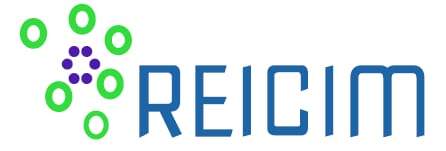Aplicación del aprendizaje basado en proyectos de forma sistémica en la formación de competencias en los futuros profesionales de las ciencias administrativas
Palabras clave:
Aprendizaje Basado en Proyectos, ABP, Ciencias AdministrativasResumen
El aprendizaje basado en proyectos como estrategia de formación de profesionales de las ciencias administrativas parece ser una opción natural para fortalecer las competencias profesionales. Las ciencias administrativas en su propio concepto de gestión son dadas a organizar su accionar en proyectos de control o mejora, inclusive una de las formas en que esta se organiza en determinados sectores es a través de la gestión de proyectos. Esta investigación tuvo como objetivo diseñar, ejecutar y evaluar los resultados de la aplicación de una estrategia de formación de profesionales en ciencias administrativa basada en el desarrollo de proyectos. Esta estrategia se aplicó en el Instituto Superior Tecnológico ATLANTIC en la carrera de Tecnología Superior en Administración y a partir de ellas se favorecieron varios indicadores relacionados de desempeño del instituto relacionados con la formación docente, la satisfacción de los estudiantes y de los públicos objetivos del entorno que se benefician de los proyectos
Citas
Abbasi, S., & Kim, E. M. (2020). Integration of c programming and iot in a raspberry pi controlled robot car in a freshmen/sophomore engineering core class. ASEE Annu. Conf. Expos. Conf. Proc., 2020-June. Scopus.
Abdul Latiff, A. H., Mokhtar, S. S. S., & Shahman, N. S. (2022). Implementation of Problem-Based Learning in Changing Perception Petroleum Geoscience Student. En Stud. Syst. Decis. Control (Vol. 381, p. 69). Springer Science and Business Media Deutschland GmbH; Scopus. https://doi.org/10.1007/978-3-030-79614-3_7
Adiego, J., & Martín-Cruz, N. (2021). Training competences in smart cities: An online program for higher education students. International Journal of Sustainability in Higher Education, 22(7), 1630-1645. Scopus. https://doi.org/10.1108/IJSHE-08-2020-0307
Albar, S. B., & Southcott, J. E. (2021). Problem and project-based learning through an investigation lesson: Significant gains in creative thinking behaviour within the Australian foundation (preparatory) classroom. Thinking Skills and Creativity, 41. Scopus. https://doi.org/10.1016/j.tsc.2021.100853
AlMalki, H. A., & Durugbo, C. M. (2022). Institutional innovation readiness for Industry 4.0 education: Towards an inclusive model for the Kingdom of Bahrain. Asian Journal of Technology Innovation. Scopus. https://doi.org/10.1080/19761597.2022.2056492
Amorati, R., Ferrari, E., & Hajek, J. (2022). Podcasting as project-based learning and its effect on the acquisition of linguistic and non-linguistic skills. Language Learning in Higher Education, 12(1), 7-28. Scopus. https://doi.org/10.1515/cercles-2022-2036
Amorati, R., & Hajek, J. (2021). Fostering motivation and creativity through self-publishing as project-based learning in the Italian L2 classroom. Foreign Language Annals, 54(4), 1003-1026. Scopus. https://doi.org/10.1111/flan.12568
Annegowda, G. K., & Mohana Lakshmi, J. (2020). Student centric pragmatic approach to impart concepts of python applications programming. Journal of Engineering Education Transformations, 34(1), 52-60. Scopus. https://doi.org/10.16920/jeet/2020/v34i1/151300
Aránguiz, P., Palau-Salvador, G., Belda, A., & Peris, J. (2020). Critical thinking using project-based learning: The case of the agroecological market at the «universitat politècnica de valència». Sustainability (Switzerland), 12(9). Scopus. https://doi.org/10.3390/SU12093553
Araujo, C., Siqueira, M., & Amaral, L. (2022). Resilience of Brazilian health-care professionals during the pandemic. International Journal of Quality and Service Sciences, 14(3), 383-401. Scopus. https://doi.org/10.1108/IJQSS-08-2021-0111
Araujo, I., Espinosa, T., Miller, K., & Mazur, E. (2021). Innovation in the teaching of introductory physics in higher education: The Applied Physics 50 course at Harvard University. Revista Brasileira de Ensino de Fisica, 43, 1-18. Scopus. https://doi.org/10.1590/1806-9126-RBEF-2021-0222
Barrs, K. (2020). Learning from the linguistic landscape: A project-based learning approach to investigating english in Japan. Electronic Journal of Foreign Language Teaching, 17, 7-15. Scopus. https://www.scopus.com/inward/record.uri?eid=2-s2.0-85094573265&partnerID=40&md5=2a70c00d437190683e37e1ee3b7d817e
Beem, H. R. (2021). Exploring the Role of Project-based Learning in Building Self-efficacy in First-year African Engineering Students. ASEE Annu. Conf. Expos. Conf. Proc. Scopus. https://www.scopus.com/inward/record.uri?eid=2-s2.0-85124545649&partnerID=40&md5=a846c0c77568d452614bb07568948c93
Carvalho, E., Eusebio, A., Ranoya, G., Araujo, C., & Ramalho, G. (2022). A Proposal For Micromanagement Of People Through Rpg Cards In Education For Innovation. En Jemni M., Kallel I., & Akkari A. (Eds.), IEEE Global Eng. Edu. Conf., EDUCON (Vols. 2022-March, pp. 822-828). IEEE Computer Society; Scopus. https://doi.org/10.1109/EDUCON52537.2022.9766495
García Vidal. G. et. al. (2022). La gestión administrativa en las micro, pequeñas y medianas empresas ecuatorianas. Editorial UTE. ISBN 978-9942
Moncada-Arce, A. M., Ortiz-Vidal, E., & Casagrande, D. E. (2022). Students’ views on linking curricular content of three first-year courses of a mechanical engineering program. Formacion Universitaria, 15(1), 83-94. Scopus. https://doi.org/10.4067/S0718-50062022000100083
Parreño-Castellano, J. M., Rodríguez-Rodríguez, M. A., & Moniz, P. F. (2022). Collaborative project-based learning. An experience with students of the Degree in Geography and Land Management. En Sein-Echaluce M.L., Fidalgo-Blanco A., & Garcia F.J. (Eds.), CEUR Workshop Proc. (Vol. 3129). CEUR-WS; Scopus. https://www.scopus.com/inward/record.uri?eid=2-s2.0-85129228102&partnerID=40&md5=dae892a203d0ac68a7dc9e4cca1a9c32
Pérez Campdesuñer. R. et. al. (2022). Particularidades de la administración organizacional en el contexto ecuatoriano. Editorial UTE. ISBN 978-9942
Yakimova, T. B., Kabanov, O. V., Zheleznikova, O. E., Hasanova, M. A., Elchin, L. M., Kondakchian, N. A., Medvedev, A. V., Novikova, O. V., Pigalova, L. V., Olefirenko, V. N., & Garin, V. V. (2022). ACTIVE LEARNING METHODS IN ENVIRONMENT MANAGEMENT AS A WAY TO OPTIMIZE THE EDUCATION PERFORMANCE. Procedia Environmental Science, Engineering and Management, 8(4), 965-977. Scopus. https://www.scopus.com/inward/record.uri?eid=2-s2.0-85129721961&partnerID=40&md5=5eb78dc089938f9741399cf060205245
Zhang, D., & Hwang, G.-J. (2022). Effects of Interaction between Peer Assessment and Problem-Solving Tendencies on Students’ Learning Achievements and Collaboration in Mobile Technology-Supported Project-Based Learning. Journal of Educational Computing Research. Scopus. https://doi.org/10.1177/07356331221094250
Zhang, R. (2022). Design of an authentic project-based learning course using project management approach. International Journal of Fashion Design, Technology and Education, 15(1), 57-66. Scopus. https://doi.org/10.1080/17543266.2021.1992799
Zhong, B., Liu, X., Xia, L., & Sun, W. (2022). A Proposed Taxonomy of Teaching Models in STEM Education: Robotics as an Example. SAGE Open, 12(2). Scopus. https://doi.org/10.1177/21582440221099525
Zhong, J., Zou, D., Lam, W. M. W., & Xie, H. (2021). A project-based collaborative learning with an online evidence-based assessment system. International Journal of Innovation and Learning, 30(3), 368-389. Scopus. https://doi.org/10.1504/IJIL.2021.118182










